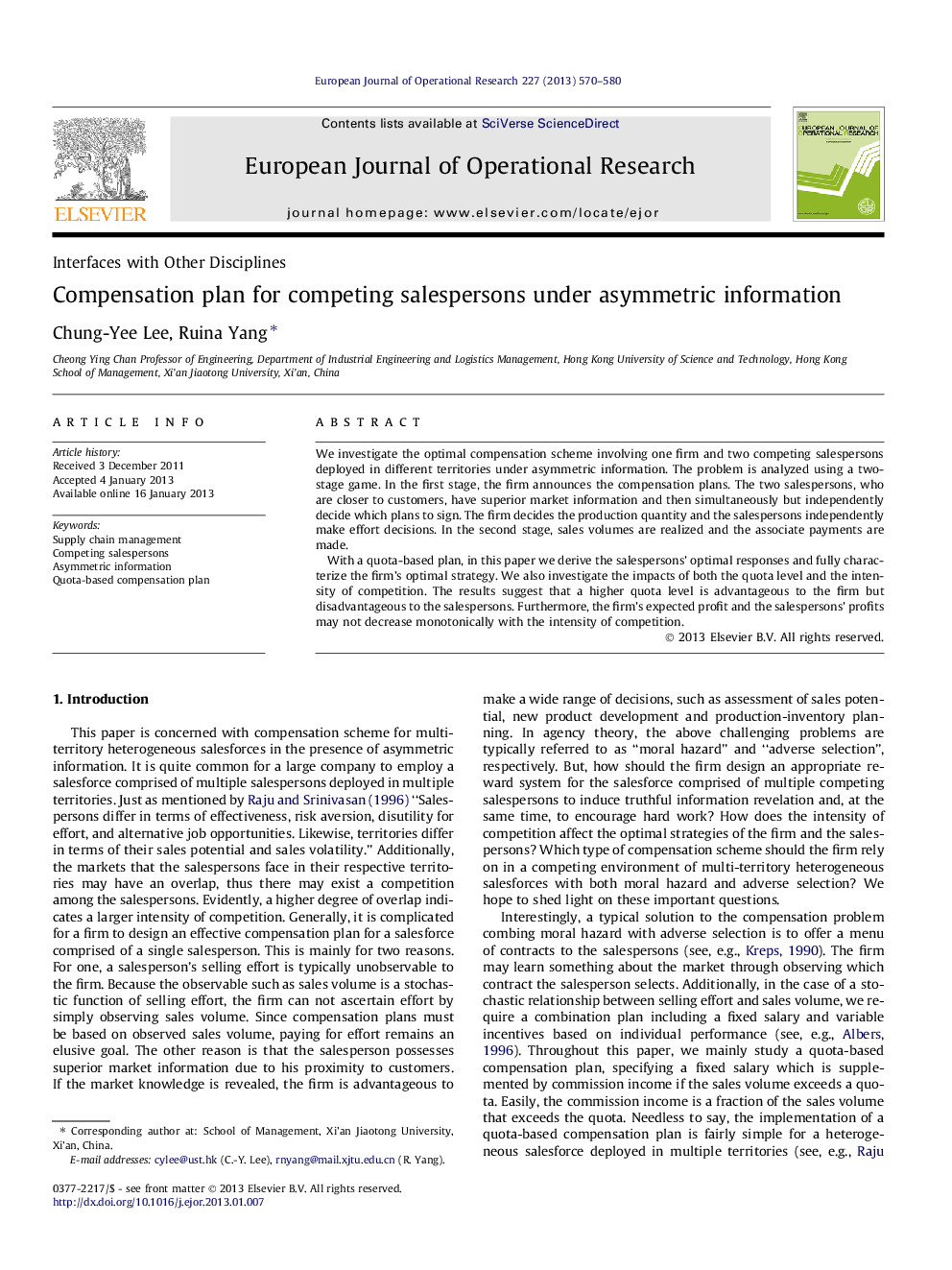| Article ID | Journal | Published Year | Pages | File Type |
|---|---|---|---|---|
| 476758 | European Journal of Operational Research | 2013 | 11 Pages |
We investigate the optimal compensation scheme involving one firm and two competing salespersons deployed in different territories under asymmetric information. The problem is analyzed using a two-stage game. In the first stage, the firm announces the compensation plans. The two salespersons, who are closer to customers, have superior market information and then simultaneously but independently decide which plans to sign. The firm decides the production quantity and the salespersons independently make effort decisions. In the second stage, sales volumes are realized and the associate payments are made.With a quota-based plan, in this paper we derive the salespersons’ optimal responses and fully characterize the firm’s optimal strategy. We also investigate the impacts of both the quota level and the intensity of competition. The results suggest that a higher quota level is advantageous to the firm but disadvantageous to the salespersons. Furthermore, the firm’s expected profit and the salespersons’ profits may not decrease monotonically with the intensity of competition.
► We model compensation plan with competing salesforce under asymmetric information. ► We study a quota-based compensation plan and characterize the optimal parameters. ► We examine the impacts of the quota level as well as the intensity of competition. ► A higher quota is advantageous to the firm but disadvantageous to the salespersons. ► The profit of firm and salespersons may not reduce monotonically with competition.
